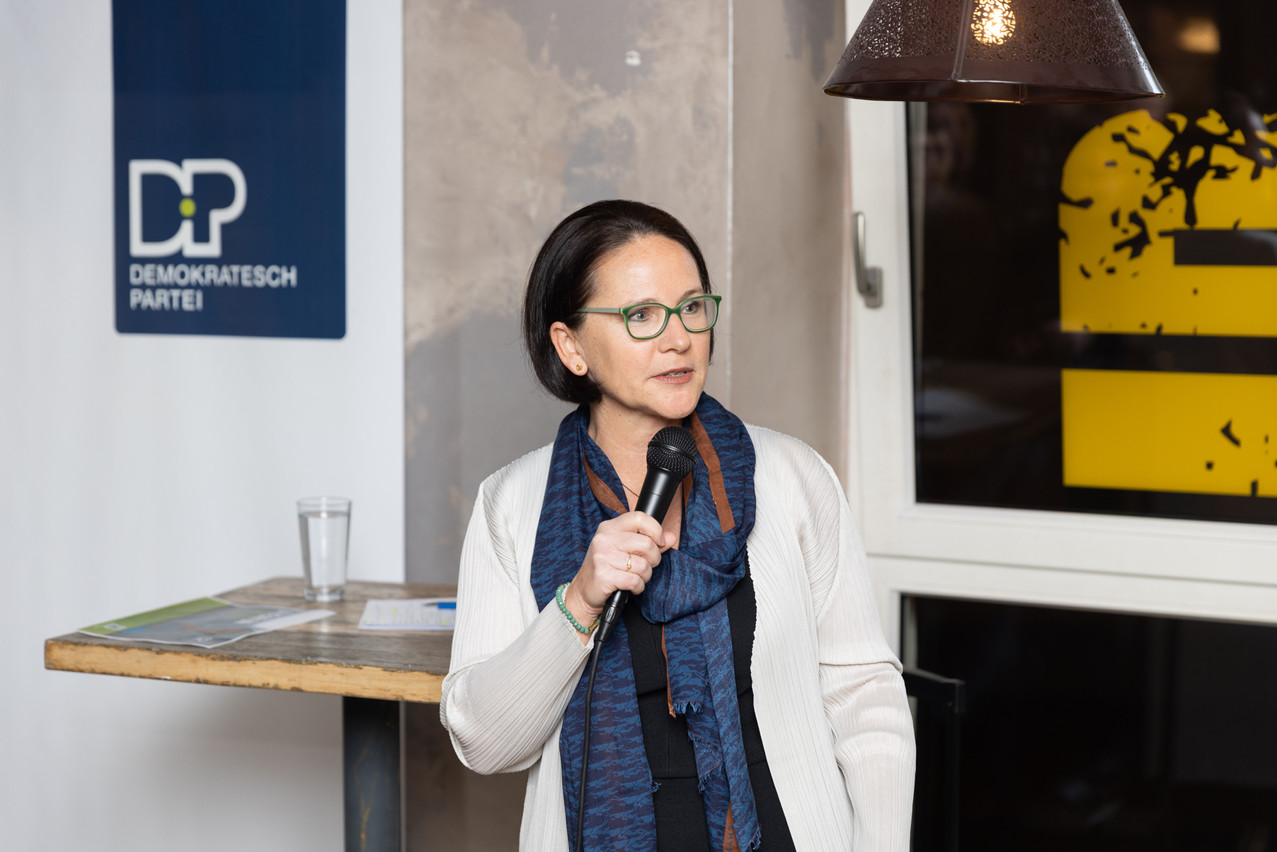The ministry of finance is where all the demands of the government ministers converge. And, in this year of crisis, “the demands have been numerous and have required constant arbitration,” said (DP) during a party meeting devoted to her assessment with DP activists.
Appointed in January 2022 to replace , who had resigned, her roadmap was “simple” for the few months that her mandate would last. But with Russia’s aggression against Ukraine, “crisis management came before all other projects.” These are projects that Backes would like to take care of following national elections in October 2023.
During the crisis, the ministry of finance, along with the entire government, had to make a commitment to deal with inflation, rising energy prices and falling purchasing power. More than others, the minister, because of her responsibilities, found herself in the front line. She had to find the balance between “measures that were beneficial to society--‘Luxembourg is a rich country with a lot of vulnerable people’--and those that helped businesses.” Two tripartite summits later, the minister believes that the mission has been accomplished.
A minister “outside the walls”
To return to the pre-crisis roadmap: at the international level, it was necessary to finalise the dossier on taxation of multinationals; at the European level, to finalise the completion of the banking union and the reform of the budgetary rules. It was agreed that the latter two dossiers would be long-term affairs that would be completed after the end of the current legislature.
The first task has been successfully completed, and Backes is pleased with this, especially since the minimum tax rate used is lower than that practiced in the grand duchy. Although the finance ministry estimates that 7,500 firms will be affected by the new regulation, it has not yet fully calculated the impact on these companies, whose typology is still uncertain.
Read also
At the European level, her programme included the completion of the banking union and the reform of budgetary rules. These are long-running issues that will certainly be resolved during the next legislature. Slowness is the hallmark of the European institutions, which she has learned to cope with throughout her career and which does not call into question her European commitment at a time when the rise of populism and nationalism worries her.
For Backes, the future of Luxembourg is in the European Union and the current context of polycrisis reinforces her conviction. Faced with the avalanche of standards coming from Brussels--“necessary standards”--but standards that “are not necessarily all in the interest of the country,” her position is to plead for “intelligent rules.”
It’s a process of constant negotiation and compromise.
Sound finances
Given that the major tax reform sought by the coalition was postponed due to the pandemic, her task revolved around two main axes: maintaining the competitiveness of the country and ensuring that public finances remained on a sustainable path.
The minister’s first budget was passed in December. It was a budget “that avoided austerity and kept investment at a high level as well as solidarity spending. A realistic budget of which I am very proud and which keeps us on the right track,” that of the AAA. The rating remains the benchmark for sustainable public finances, and the latest seem to prove her right.
Regarding the competitiveness of the Luxembourg economy, there is no great novelty in the “Luxembourg toolbox.” The minister wanted to listen to sector professionals in order to “understand their needs and help them as best as possible,” and she has increased her visits with Luxembourg for Finance.
However, not all professionals are won over. Many feel that the links between politics and the financial sector have become weakened. But can these links be maintained as they were 10 years ago, before the LuxLeaks scandal?
Concerned professionals
Responding directly to a tax expert who complained that the links between the tax administration and taxpayers, “one of the keys to the country’s attractiveness,” are no longer as direct as they used to be--“a phone call was enough to solve the problems”--Backes replied that she was not sure whether it was necessary to go back to the way things were. “The financial centre has evolved in a positive direction thanks to the measures taken by my predecessor. So there is no question of going back to the permissiveness that did the financial centre a disservice.”
But the fundamental question, that of the understanding of the financial centre by the political staff--both ministers and MPs--will have to be addressed. There is a sense of dissatisfaction which, if not addressed, could in the long term do the financial centre, and therefore Luxembourg, a disservice.
But a good assessment can only be prospective, especially during an election campaign. And there are some projects that the minister was unable to complete.
Read also
First, the tax reform. “I inherited an old and outdated system. I did not neglect the subject, the crisis simply came before and occupied all resources. But it must be done. For the DP, the individualisation of taxation is a reform that must be carried out. And I hope to have the chance to work on it in the future.”
While waiting for this great revolution, Backes returned to the announcement made a few hours earlier on Monday concerning . These will be in the form of tax credits, “an easy and quick solution to implement,” and details on this relief should come in the coming weeks.
This story was first published in French on . It has been translated and edited for Delano.
